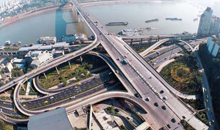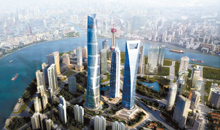
Investors are biting their nails as they anticipate the release of China's economic data on Monday, which may show the world's second-largest economy grows at its weakest pace in more than five years.
Wang Tao, chief China economist with UBS, expected the country's third-quarter GDP growth to slide to 7.1 percent, from 7.5 percent in the second quarter and 7.4 percent in the first quarter. It may be the lowest pace of increase since the first quarter of 2009, when the global financial crisis brought growth down to 6.6 percent.
China is scheduled to release its major September economic indicators next week, along with its third-quarter GDP growth.
Wang forecasts improving export and import growth for September, which is likely to register a trade surplus of $37 billion, she said in a report to clients.
Analysts expected the country's inflation to remain contained, with consumer price index seen coming in under 2 percent for September, in line with weak demand and continued industrial oversupply.
Lian Ping, chief economist with the Bank of Communications, said he expects third-quarter GDP growth at 7.3 percent, with a sharp decline in property investment pulling down the country's total investment and weighing on the economy.
To stabilize growth, Wang said the government will step up easing measures in the last quarter. They may include lowering downpayment ratios for first home-buyers and accelerating reforms to boost growth momentum. ' HSBC also believes China's policymakers will step up fiscal spending and targeted quantitative easing in the coming period to stabilize growth.
HSBC lowered its forecast for third-quarter to 7.3 percent from 7.4 percent, saying the effect of some earlier "mini-stimulus" measures are starting to wear off and the spill-over from the property slowdown continues to be felt in related sectors.
The central bank may be concerned about the signalling effect of a reserve requirement ratio (RRR) cut, but should downside risks become larger or its current measures are not as effective, a rate cut is still an option towards the end of the year, HSBC chief China economist Qu Hongbin said.



























 沪公网安备31010402003309号
沪公网安备31010402003309号